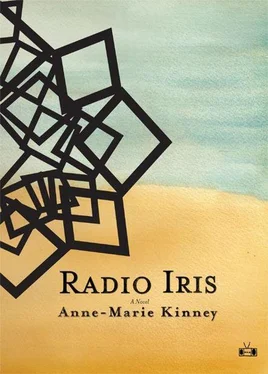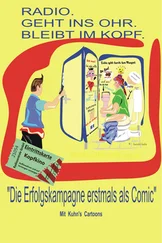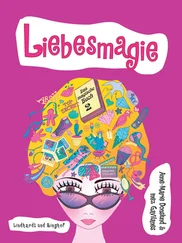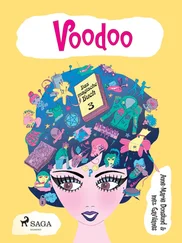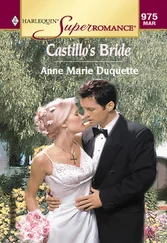She waits. She listens to voicemail and writes down her boss’s one message, which she then leaves on top of a pile of unopened mail on his desk: Mr. Farquar(sp?) called. He needs you to call him back ASAP because he is “at the end of his rope.” No number.
Then she hears what she has been waiting for, the angry mechanical bleat of the alarm followed by the smack and the mumbled profanities, then the crackle of voices on the radio. She moves toward the door and presses her ear against it, creating a seal, a small private space between her head and the building. She imagines him shuffling about in a bathrobe, scratching his unshaven face and kicking things that get in his way. Or he could still be in bed. Or doing any other thing one might imagine. She shouldn’t get ahead of herself. But in her head, in that sealed space between her ear and the door, she can feel his awakening as a cloud that fills his room, and sends cold vibrations through the doors and around her body, circling.
She stands like this, waiting, but nothing follows. She never hears the door open, or anything else. She wonders if he even got the note. If she even really left it. Maybe she could still take it back. Finally, she sits down at her desk and turns on her computer. There won’t be anything today. She tells herself this. When the doorknob turns, though she is doing nothing wrong, she snaps to attention, puts on a serious look, and squints at her computer screen.
“Good morning,” she offers, looking up as her boss enters the room.
“If you can call it that,” he mutters, rapping her desk with his knuckles as he passes.
Several days later, Iris arrives at the office to find a box on her desk. She sees it as soon as she turns on the lights, and stares at it while she de-activates the alarm system. She drops her purse beside her desk and looks at it from the side. It is about the size of a brick, and has been taped so thoroughly, so determinedly that it shines like liquid. She is almost afraid to touch it. She keeps her eyes locked on it as she turns on her computer and checks voicemail, as though she thinks it will vanish if she looks away.
When she can’t stall any longer, she picks it up. It is light as a piece of paper. With a letter opener, she stabs a thin line around the edges, and lifts off the top of the box like a lid. Inside, there is a white paper napkin folded in half. She opens it, and inside are written the words, I am very busy. Don’t ask. Ask me later. I’m not here.
Iris learned what death was when she was six years old. She had been sitting at the kitchen table, eating cereal on a Saturday morning, her bare feet resting on Sebastian. She laid her feet on the coarse hair of his back, and he kept her from dangling. Her cereal had gone soggy— she couldn’t eat it fast enough. She was watching the shredded wheat change properties while her mother stood at the counter, scraping oatmeal from the sides of the pot into a white bowl.
On the radio, they were talking about a famous singer whose death from an undiagnosed heart defect had just been announced. He had been found slumped over his kitchen table by the housekeeper. The host was taking calls from people who said they had always felt a connection with him, and people who, embarrassed, admitted he was their first crush. One woman, who readily admitted she was old enough to have been his mother, broke down on the air.
She gasped and heaved for ten seconds straight, the host intermittently whispering, “It’s okay… it’s okay…”
When she finally regained composure, she apologized.
“Oh god, I don’t know why I’m reacting so strongly to this. I feel like an idiot. I don’t even know why I called you.”
“You’re not an idiot,” the host said. “It’s a sad day. For all of us, and especially for those of us who loved his songs so much. We’ll be back after these words. You’re listening to KSTR, the star of the airwaves.”
Iris was confused. She stared into the mush in her cereal bowl and listened as the somber mood of the broadcast was overturned by a bright jingle for a carpet cleaning company. She was jarred by the sound of the twinkling piano and the chorus of voices, singing a phone number, all in unison. Suddenly, she felt like gagging, as though hair were growing on the inside of her throat.
She looked to her mother to see if she too had noticed the change, or if it was only her, but her mother never looked away from the window. Iris poked her head under the table to let Sebastian know she was leaving the table. She made eye contact with him and swiveled around in her chair, lightly dropping her feet on the linoleum. He got up and followed her down the hall to her bedroom.
She was sitting on the floor of her room, adjusting the Velcro flaps of her tennis shoes, attempting to reach the perfect level of tightness. Each time she affixed them, she stopped, concentrated on the space or lack thereof inside her shoes, then tried again. Sebastian sat in the center of the doorway. Then Neil called from the front door, “Hey dingleberry— we’re going to the lagoon without you if you don’t hurry up!”
Iris jumped up, ran down the hall to him, waving goodbye as she passed the kitchen, though her mother wasn’t there to receive it, having already disappeared into some other corner of the house.
The lagoon was a mile away. Iris, her brother, and their father walked in a line, three abreast along the gravel road, Sebastian trotting ahead, alongside little houses just like theirs, great yards, trees, and pastures hidden behind. Iris looked at each house, hoping to see glimpses of the neighbors through their windows. They had only moved there several weeks earlier, at the start of the summer, and Iris still didn’t have a handle on who lived where. She had noticed people from afar, but hadn’t spoken to any of them. It was such a small town, she thought she ought to have it memorized by now, but it was a hard thing to do, alone in her mind. Her favorite thing about this place was the horses that had come with the house. She could talk to them for hours, leaning her cheek against the fence between the backyard and corral. After so many afternoons spent baking in the sun like that, their previous residence had all but completely slipped from her memory.
She turned her gaze forward again. Their shadows were tall and limber, like licorice whips. She imagined that the four of them were cowboys on some kind of mission. It was so quiet out, and the sun was so bright that Iris had to look at the ground, holding her father’s giant hand and listening to the gravel crunching under their feet.
When they reached the path that circled the lagoon, Neil ran ahead, following Sebastian into the high cattails by the edge of the murky green water. Ducks congregated nearby. Iris continued holding onto her father’s hand, wind now blowing her ponytail into her face.
After a long moment in which she tried to think of the best way to ask the question that had been brewing all morning in the bottom layer of her mind, she blurted out, “He’s dead.”
“What?” her father said, squinting down at her.
She shook her head and continued.
“The singer. On the radio… they said he’s dead. Is he?”
“That’s right,” he said, squeezing her hand a little tighter.
They continued walking down the path, watching as Neil grabbed a fistful of cattails and crushed them in his grip. He threw the dust in the air and Sebastian leapt after it, catching bits on his face and on the tip of his big lolling tongue, while Neil snapped off another one, laughing.
“But, what happens now?” she continued, looking up at her father’s rough jawline, and the pallor of his throat, a dark red razor nick just above his Adam’s apple, “You know, until…”
Читать дальше
